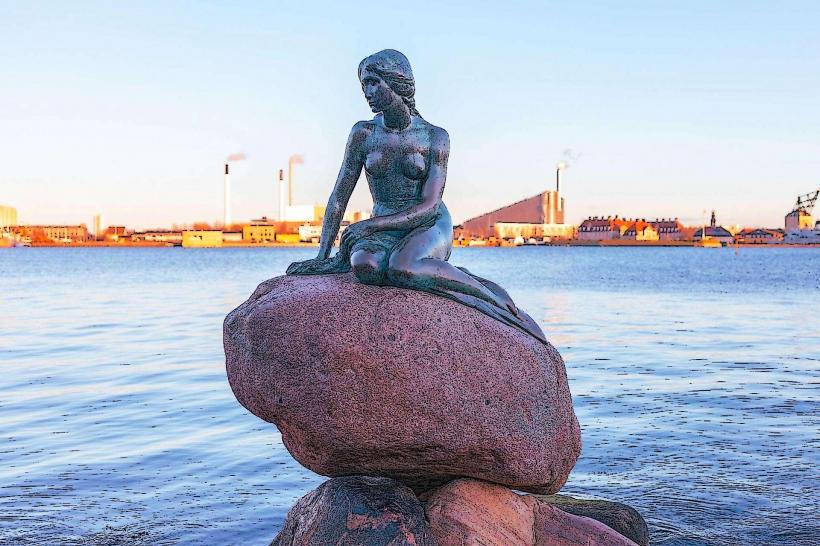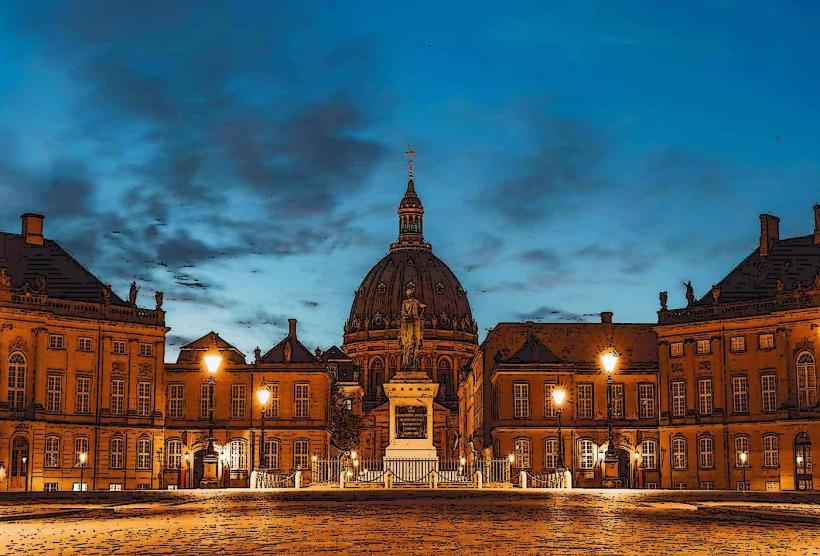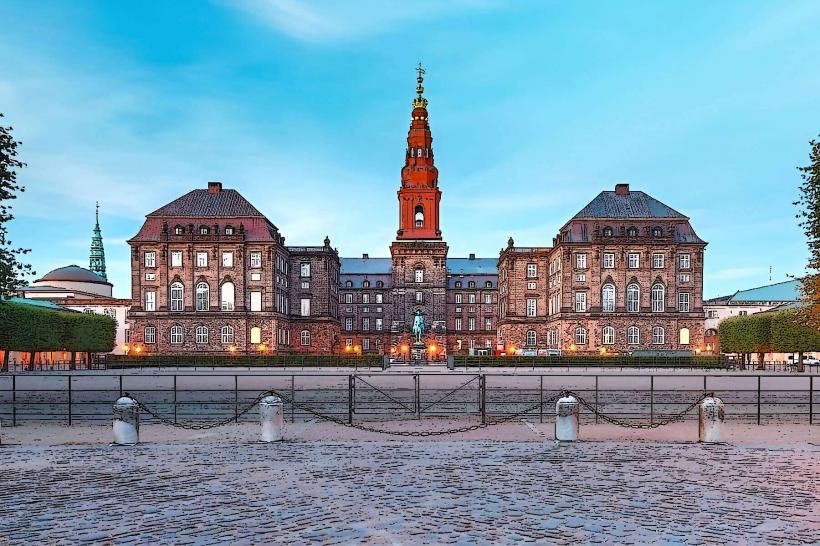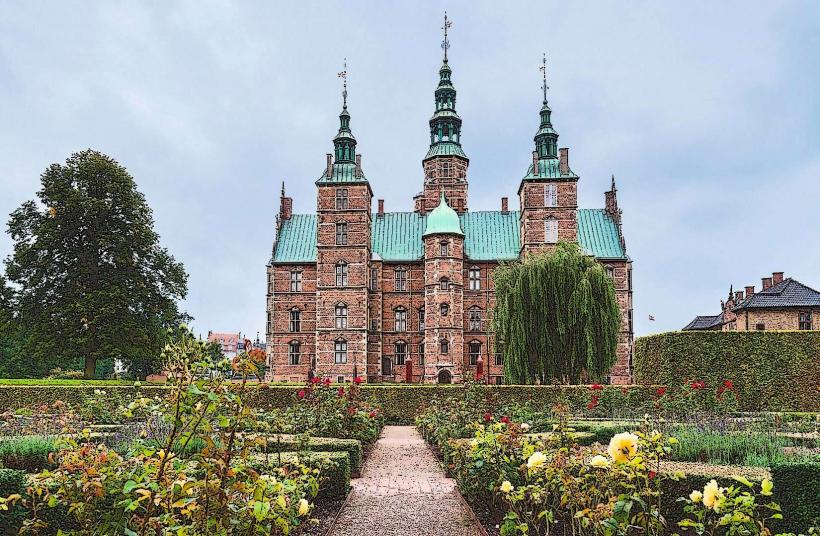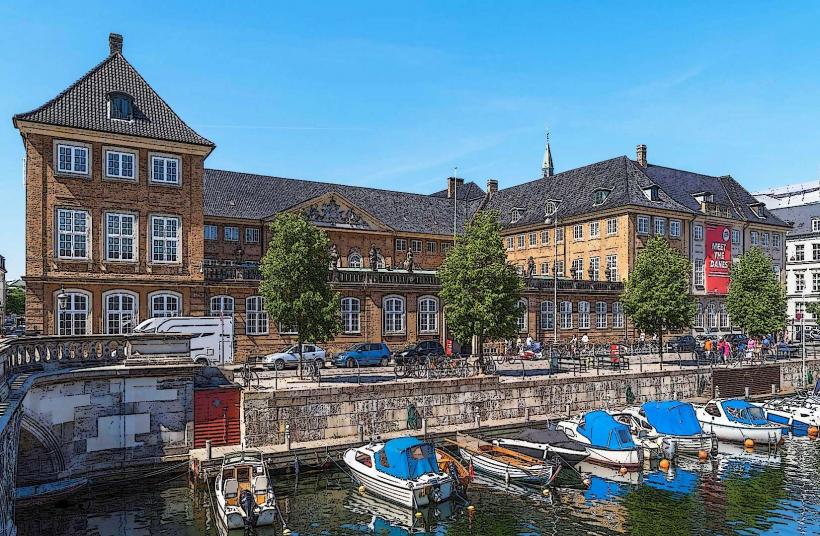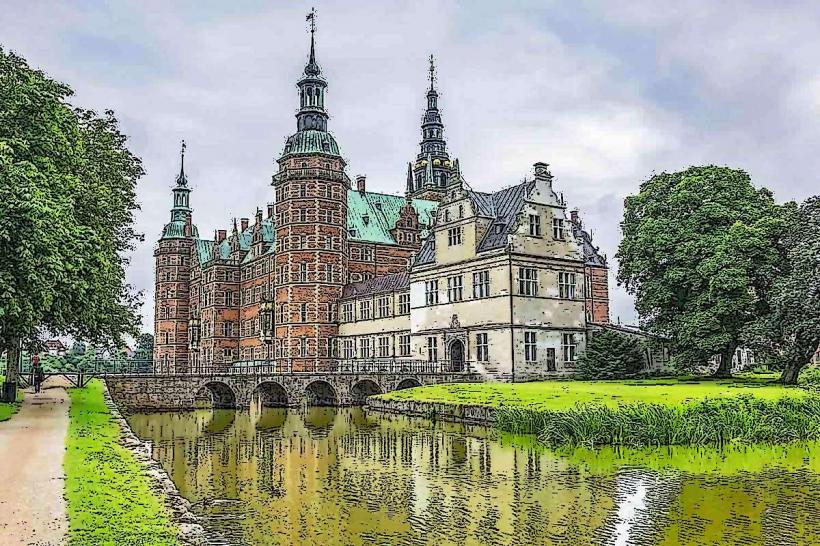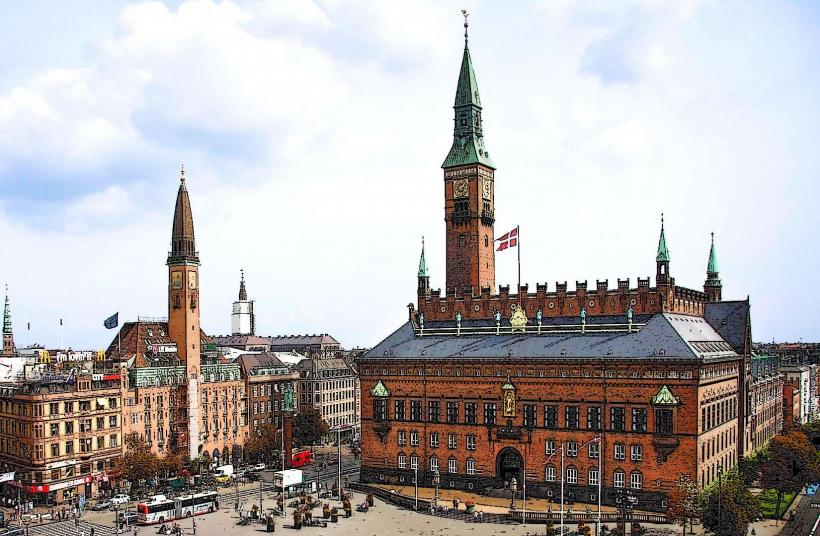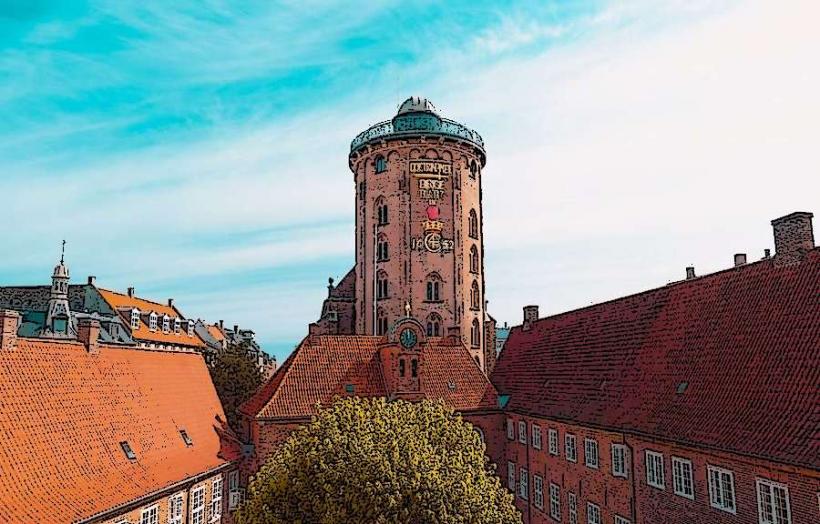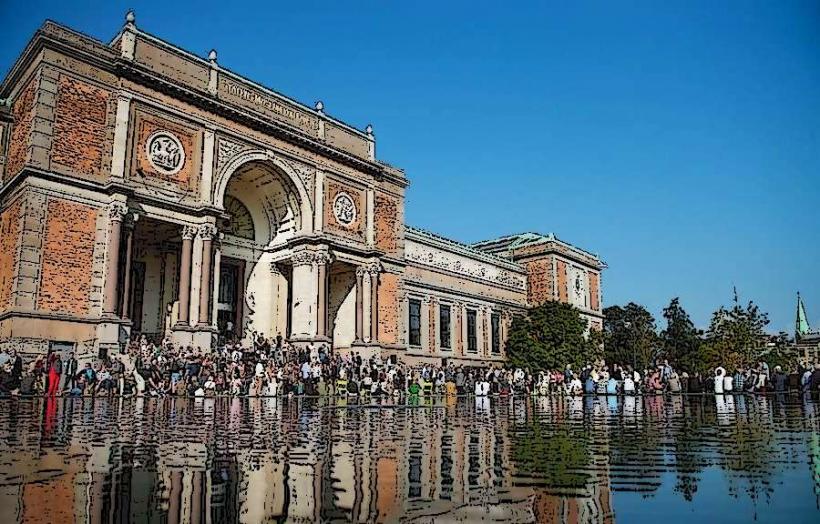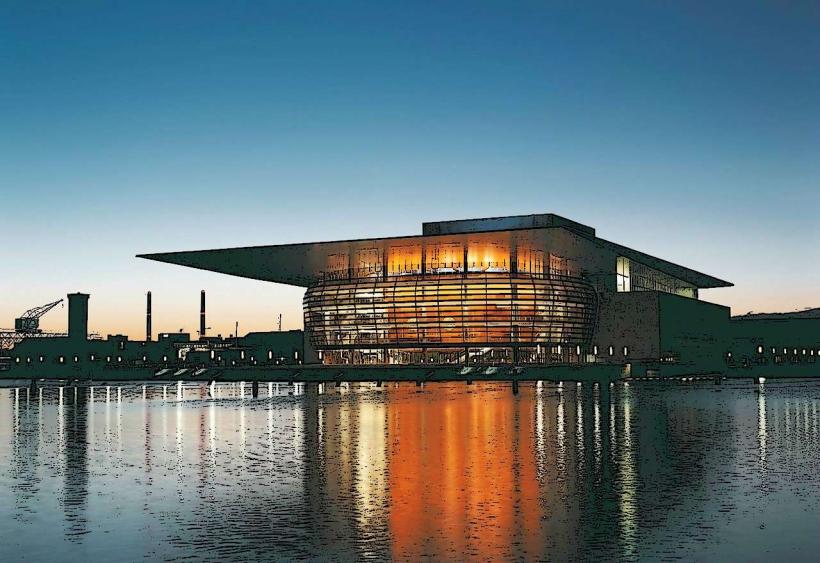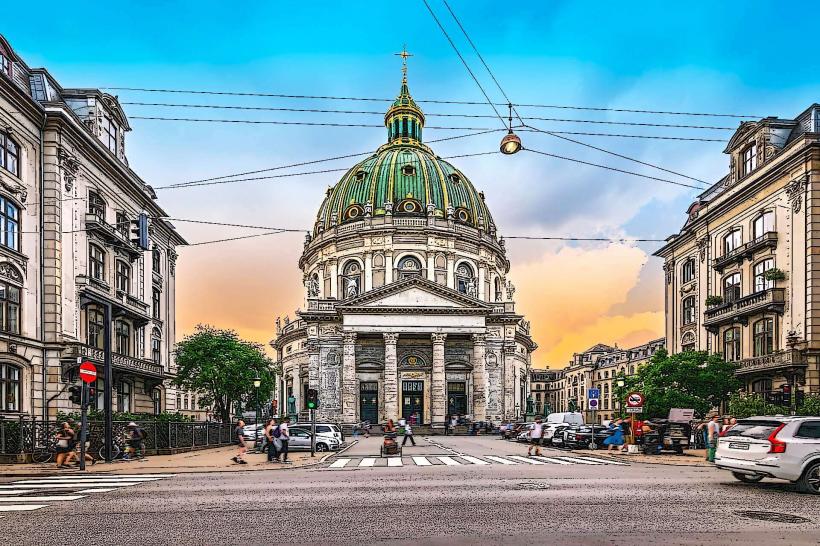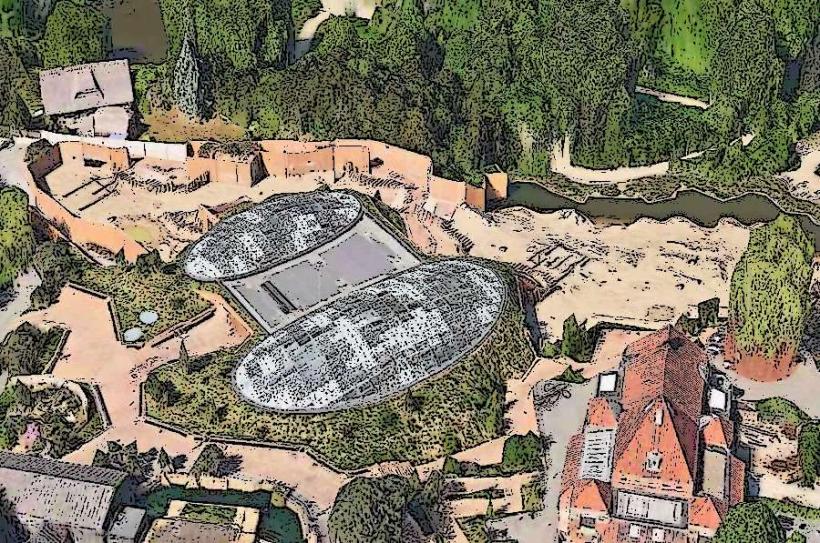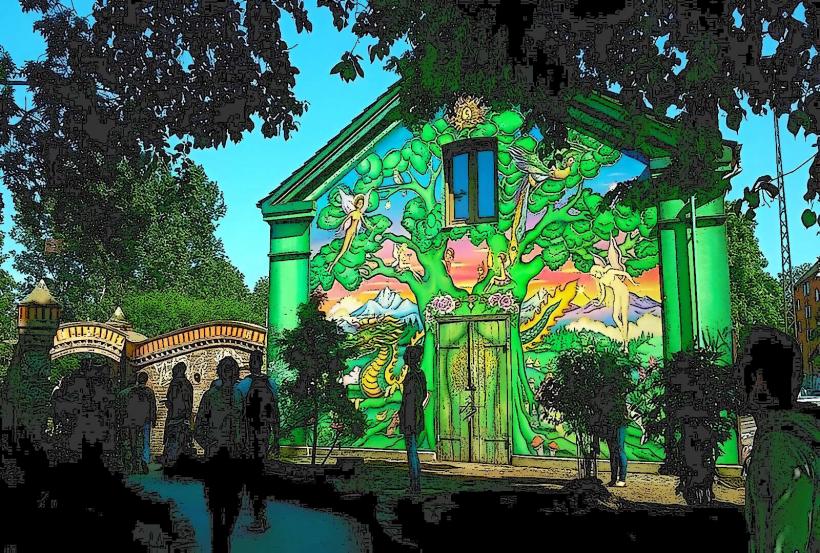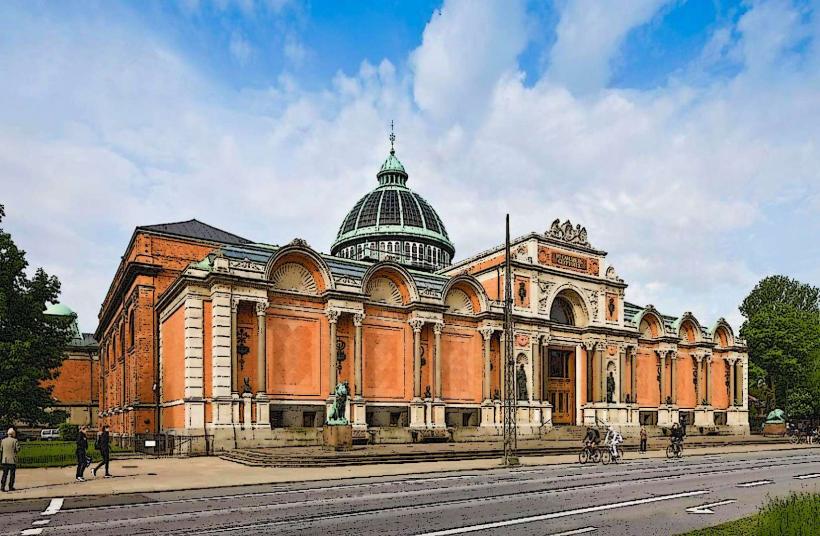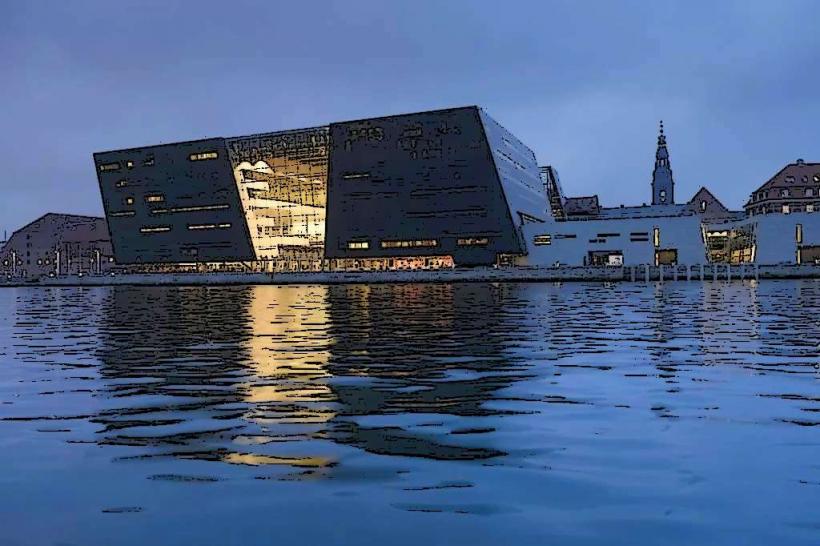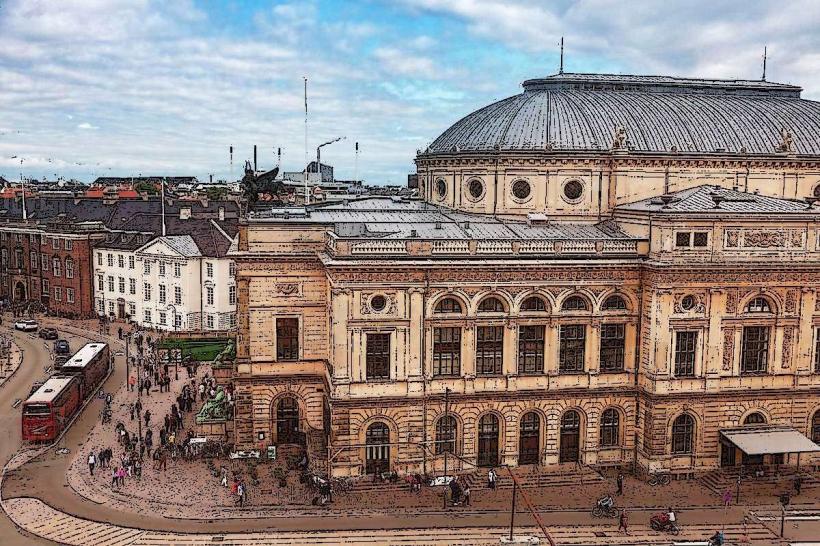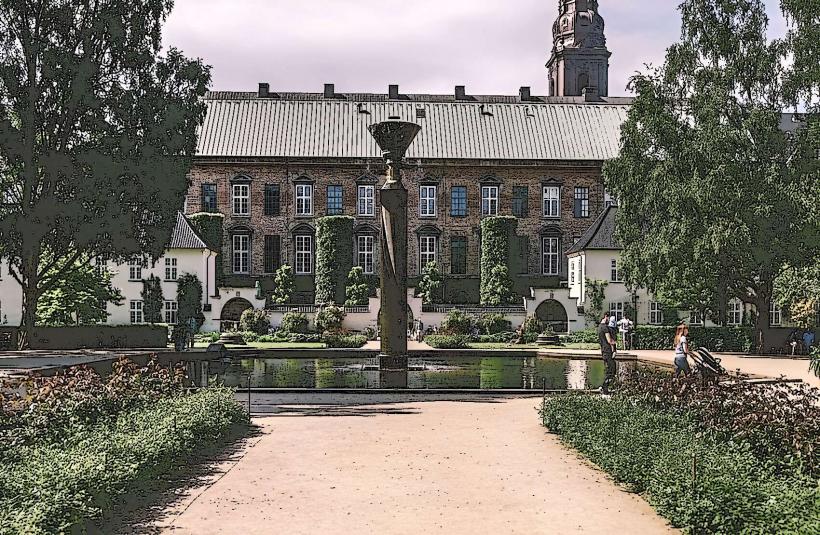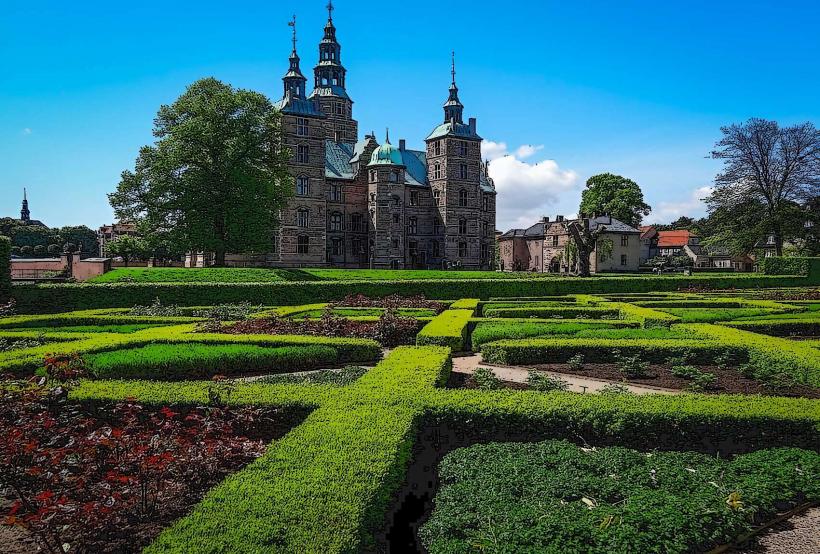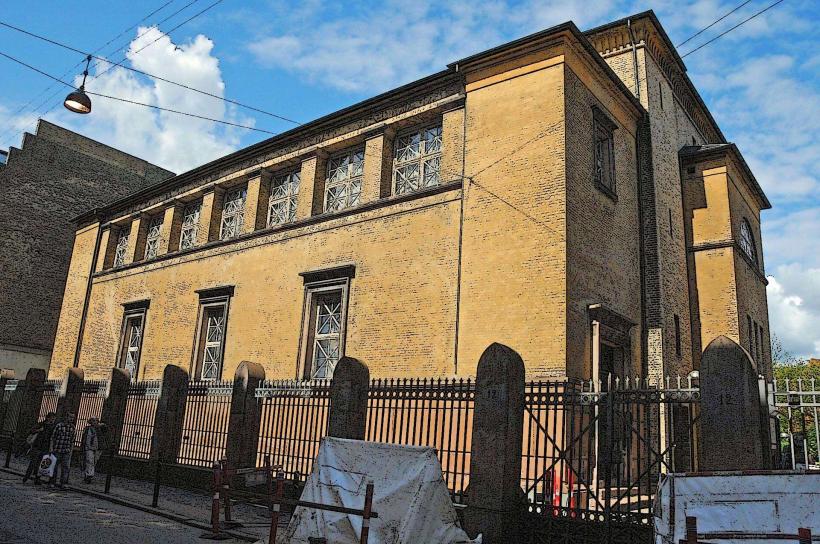Information
Landmark: Danish Jewish MuseumCity: Copenhagen
Country: Denmark
Continent: Europe
Danish Jewish Museum, Copenhagen, Denmark, Europe
Visual Characteristics
The museum occupies a 17th-century building, originally a boat house, which was reconfigured by architect Daniel Libeskind. Libeskind's design features a zigzagging interior space, characterized by slanting walls, tilted floors, and irregular angles, creating a deconstructivist environment within the historic shell. The primary materials are white-painted walls, dark wood flooring, and exposed brickwork from the original structure. The exterior maintains the red brick and white trim of the historic Royal Library complex.
Location & Access Logistics
The museum is situated at Proviantpassagen 6, 1218 Copenhagen K, approximately 1 km southeast of Rådhuspladsen (City Hall Square). Public transport access includes bus lines 2A, 26, and 66, which stop near the Royal Library. The nearest Metro station is Gammel Strand (M3/M4 lines), approximately 0.7 km walk. Limited street parking is available on nearby streets, typically paid. A public parking garage is located under the Black Diamond (Royal Library) building.
Historical & Ecological Origin
The museum was established in 2004, designed by architect Daniel Libeskind. It is housed in the former Royal Boat House, built in 1622 by King Christian IV. Libeskind's architectural intervention transformed the historic structure into a modern exhibition space, with the design concept based on the Hebrew word "Mitzvah" (good deed), reflecting the rescue of Danish Jews during World War II. Its original purpose was to serve as a storage facility for royal vessels.
Key Highlights & Activities
Visitors can explore the permanent exhibition detailing 400 years of Danish Jewish history, focusing on themes of integration, persecution, and the 1943 rescue operation. The museum features artifacts, documents, and personal testimonies. Temporary exhibitions are periodically presented in a dedicated gallery space. Educational programs and guided tours are available upon request.
Infrastructure & Amenities
Restrooms are available on-site. The museum's interior offers climate control but limited natural shade due to its design. Cell phone signal (4G/5G) is generally strong throughout the building. A small museum shop sells books and souvenirs. There is no dedicated cafe within the museum, but several cafes and restaurants are located within a 200-meter radius, particularly within the Black Diamond building.
Best Time to Visit
The museum is typically less crowded during weekday mornings, shortly after opening. Photography is best during daylight hours due to the interior lighting design. Copenhagen experiences its mildest weather from May to September, making these months suitable for visiting. No specific tide requirements apply.
Facts & Legends
The museum's interior architecture by Daniel Libeskind is designed to be a narrative in itself, with the floor plan spelling out the Hebrew word "Mitzvah" when viewed from above, symbolizing the Danish resistance's act of saving most of the Jewish population during the Holocaust. This architectural choice directly reflects the museum's core theme of the 1943 rescue.
Nearby Landmarks
- The Black Diamond (Royal Danish Library): 0.05km West
- Christiansborg Palace: 0.4km North
- Thorvaldsens Museum: 0.5km North
- National Museum of Denmark: 0.8km Northwest
- Nyhavn: 1.2km Northeast


